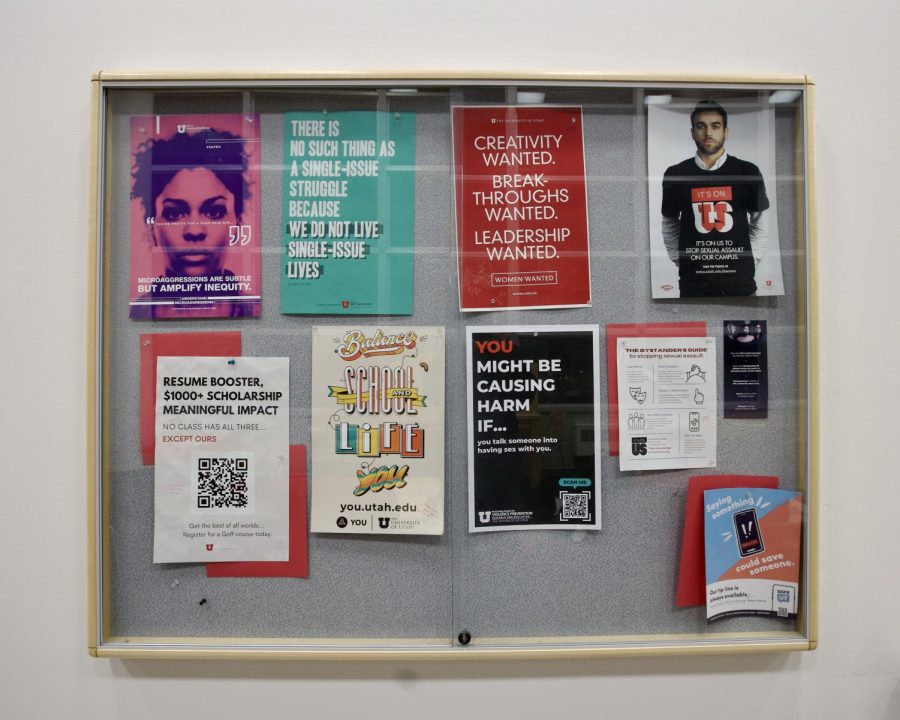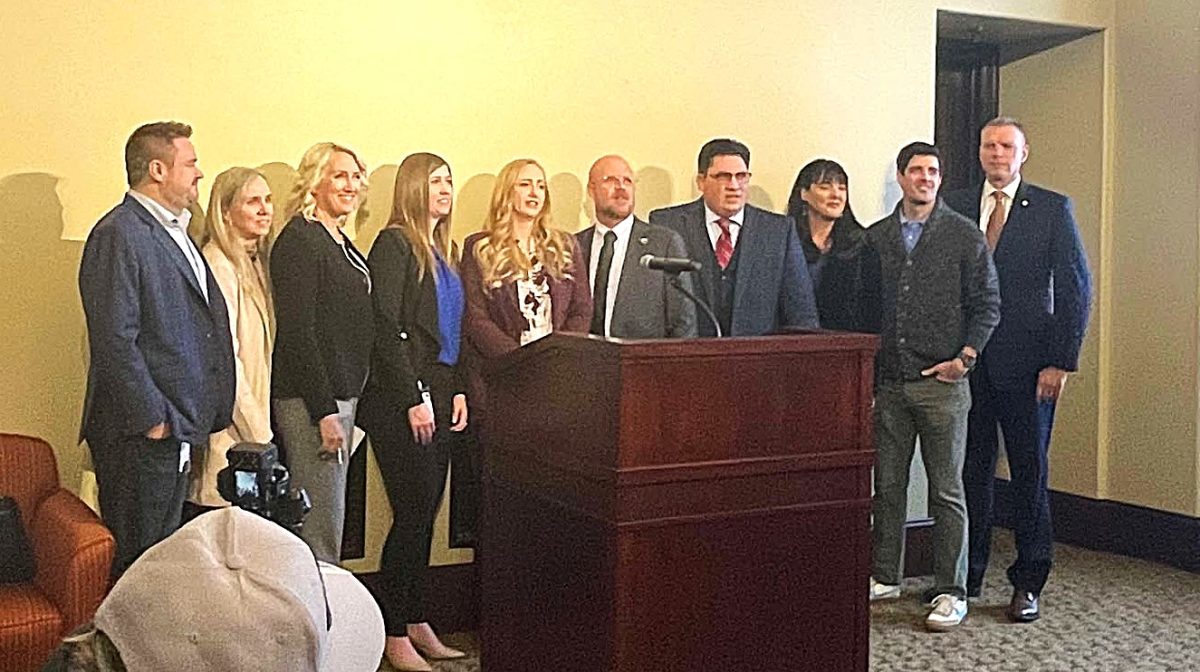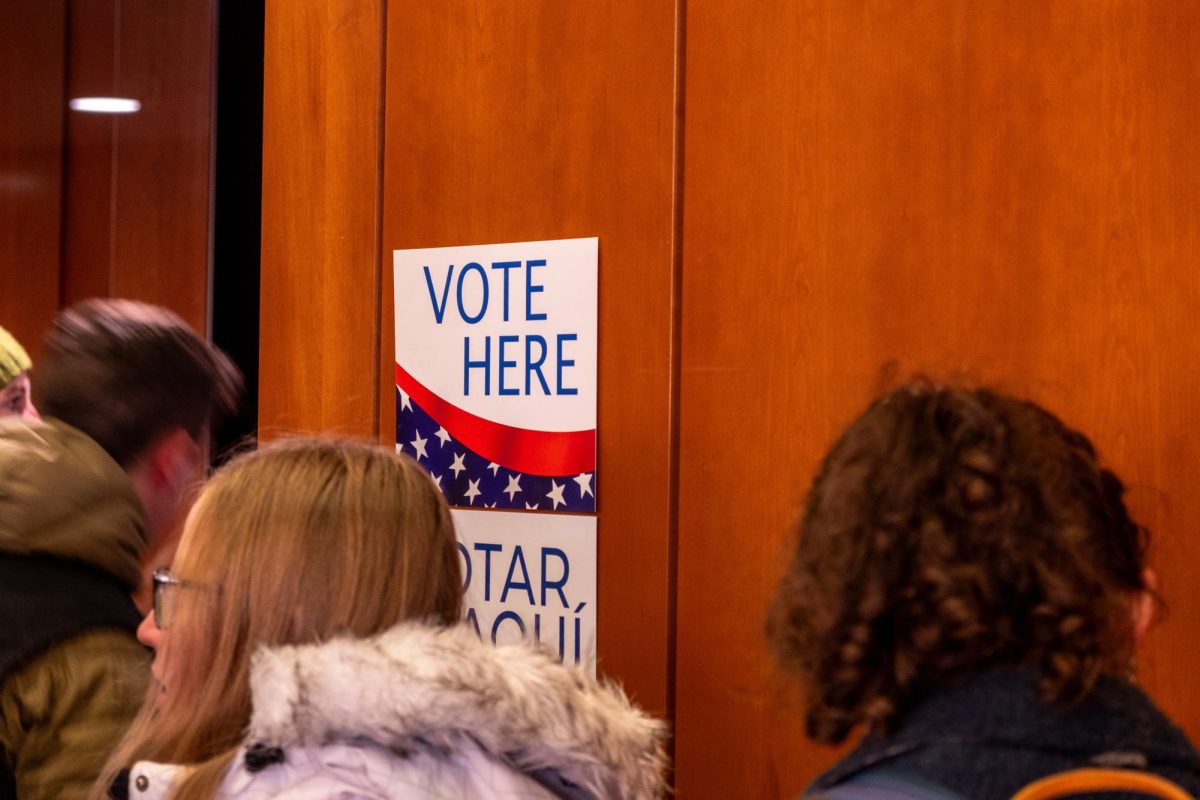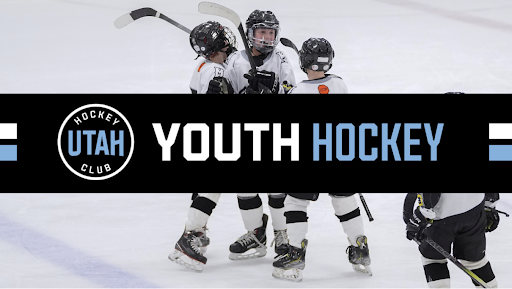McCluskey Campaign Points Out Ways Students Might Be Causing Harm
Bulletin board in the Union building at the University of Utah on Jan. 24 , 2023. (Photo by Sophie Felici | The Daily Utah Chronicle)
January 31, 2023
Looking around campus, students will now be able to see posters with the word “YOU” in bold red letters. These posters detail different ways students at the University of Utah may be causing harm to their partners in sexual situations. These advertisements are part of a new campaign put on by the McCluskey Center for Violence Prevention called “You Might Be Causing Harm If…”.
Yulisa Padilla, a senior at the U majoring in sociology and one of the creators of the campaign, said that this campaign is meant to help students identify normalized behaviors in themselves and people they know that unknowingly cause harm to others.
“Hopefully this will get students to engage in more self-reflection and learn about why these behaviors are harmful and eventually change those behaviors,” Padilla said. “A lot of the time people who do cause harm don’t know that they are or they’ve been socialized in ways that can lead to these harmful behaviors.”
Harm and emotional abuse can be completely unintentional, and the person causing this harm likely learned from someone else, like a parental figure, when they were younger, according to Forbes Health.
This campaign looks at harm reduction from a new perspective, said Whitney Hills, associate director of education at the McCluskey Center for Violence Prevention, taking the blame off of victims and placing it on those who are actually causing the harm.
“[Saying things] like ‘avoid going out alone at night, walk with a buddy, carry mace’ … things like that put the responsibility on folks who are potential victims to not get harmed,” Hills said. “What we’re really trying to do with this is to flip that narrative on its head, [on those who] engage in harmful behaviors.”
Several students at the U were involved in creating the campaign, and for her posters, Padilla focused on the importance of the many different levels of consent and warning signs that signal someone is being harmed.
“Consent is really complex, and body language and emotions are just as important as verbal communication,” Padilla said. “ A lot of the time [body language and emotion] can be dismissed because we’re caught up in the moment … It’s our responsibility to be in tune with our partners emotionally and mentally in the same way that we are physically.”
However, many people are confused about what consent truly looks like, and according to Teen Vogue, just taking off clothes is a sure sign of consent for 35% of people.
According to Hills, pointing out these harmful behaviors to college students is important for behavioral change to be able to occur, especially at a time when addressing these topics is difficult and awkward.
“We have a culture where it’s uncomfortable to either hold someone accountable or admit that you have caused harm,” Hills said. “We have punitive responses. We as a society haven’t normalized or come up with a way to easily address these.”
In just the first week of having the posters around campus, Hills has already noticed lots of people engaging with them and having conversations about harmful behaviors and is hopeful about seeing changes throughout the student body.
“It can elicit change in individuals,” Hill said. “We’re seeing hidden conversations [students are] having across campus, and hope that these posters can catch the attention of many more folks.”
While pointing out harmful behaviors is just the first step of changing the culture around harm, Jilly Mcbane, a sophomore at the U studying psychology who works at the McCluskey Center for Violence Prevention, said in an email interview that awareness is key to preventing harm from occurring to students in the future.
“By pointing out these harmful behaviors on our posters all over campus, we’re hoping to stop future harm before it happens, which in other words, is primary prevention of relationship and sexual violence,” Mcbane said. “For us on student staff, this campaign is the first big project we’ve worked on and contributed to together, and I think we’re all really proud of how it turned out.”
For more information on the “You Might Be Causing Harm If…” campaign, students scan the QR code on the posters around campus or go to the McCluskey Center for Violence Prevention website for more resources.













